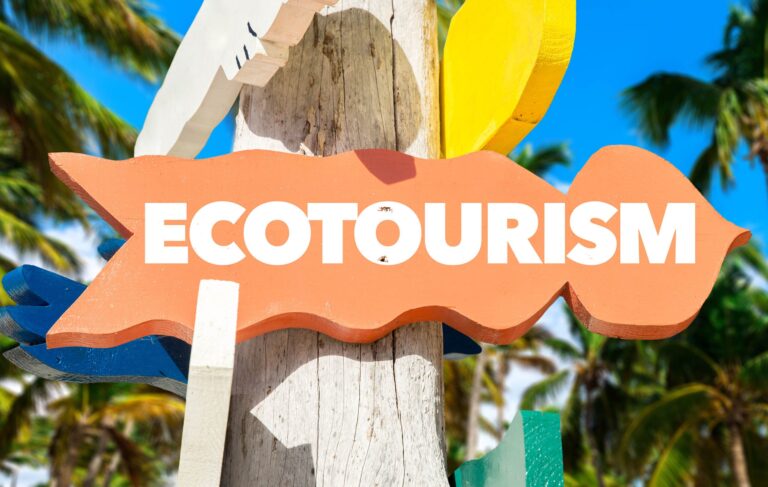Traveling the world is a learning experience, an adventure, and a way to make memories that will last a lifetime, but it can oftentimes be harmful to the environment. As climate change worsens, it’s important to be conscious of the part we play in carbon emissions as individuals. For those who love to travel, ecotourism is a concept worth exploring and adopting.
As defined by The International Ecotourism Society, ecotourism is “responsible travel to natural areas that conserves the environment, sustains the well-being of the local people, and involves interpretation and education.”
Traveling sustainably is not just about conserving the earth, but appreciating and respecting the people and cultures of the places you visit. Some of the core principles of ecotourism include: minimizing physical, social, behavioral, and psychological impacts, building environmental and culture awareness, generating financial benefits for local people, and recognizing the rights and beliefs of Indigenous people in communities.
Eco-conscious travel can be very simply understood in the physical sense. According to Vox, tourism is one of the fastest growing industries in the world. It accounts for millions of jobs and billions of dollars in spending. But ecotourism is a slippery slope for those looking to minimize their environmental impact. One of the most complex issues here are flights, which emit large volumes of carbon emissions every day.
In efforts to reassure travelers, airlines have allowed flyers to buy carbon offsets, but whether these purchases are actually offsetting emissions cannot be proven. Those interested in resolving this issue may look to boats, trains, or slower forms of travel to move from place to place.
Another physical aspect of ecotourism is the preservation of natural environments and communities. Vox points out that hiking popular trails in the wilderness or swimming with wildlife could be harmful to these environments, despite the attempt to engage with nature. “In the 1980s, mass tourism began to wreck some of the world’s most sensitive ecosystems, such as the Riviera Maya in Mexico, where near-constant development has led to local forests being cleared,” Vox cites.
Another example of this is the famous Krka National Park in Croatia, where a gorgeous waterfall slopes into translucent greenish blue waters. Once visitors were permitted to swim in these waters, an activity which has since been banned due to the environmental impact of droves of people contaminating the waters. Now, tourists can simply take photos of the waterfall from a bridge secured away from the falls. Though these changes may be disappointing, they are meant to protect and support the growth of wildlife and plantlife and safeguard these natural sites from human destruction.
Where you to choose to travel is almost as important as how you interact with that space. Following devastating wildfires in Hawaii, social media influencers posted videos begging tourists to cease travel to Maui so that local resources could be focused on the recovery of affected families and residents. An ecotourist would listen to this request and decide not to plan their annual trip to Hawaii out of respect for the community.
With these things in mind, tourists can use a certified list of locations around the world from the Global Sustainable Tourism Council. Locations on the list must fulfill the four C’s: conservation, community, culture, and commerce.
Aside from protecting the physical environment, ecotourism requires that tourists learn about and respectfully interact with the social environment in hopes of reversing the “exploitative relationships between tourists and locals.”
Consider these questions next time you visit a new destination: When you travel, is your consumption directly benefiting the community you are exploring? Are you traveling with mindfulness of gentrification as a result of tourism, or your own exploitation of a location and its people for your own pleasure?
In locations frequently inundated by overtourism like Venice, Italy, Santorini, Greece, Dubrovnik, Croatia and more, you may notice locals might have a certain resentment or pre-conceived notions of tourists. Are you interacting with these locals in non-invasive ways? Are you respectful of them and their cultural norms?
When you begin to consider these factors while traveling, you are on the road to becoming an ecotourist.


